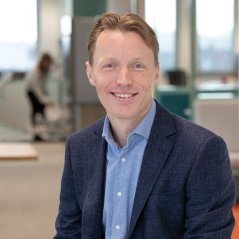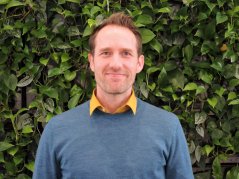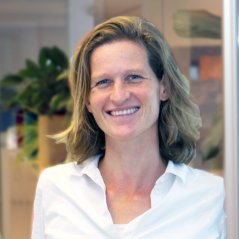
Project
Good Health and Opportunities for All (COMPLETED)
The Health and Society group contributed to the overarching evaluation study of the ‘Good Health and Opportunities for All’, program. This FNO program aims to improve health and well-being of families in a disadvantaged situation. Citizen science is one of the ways this program realizes joint learning and empowerment.
The FNO program ‘Good Health and Opportunities for All’
The aim of the FNO program ‘Good Health and Opportunities for All’ is to improve the health and wellbeing of families in disadvantaged situation. FNO finances neighbourhood approaches in different municipalities all over the Netherlands. In these neighbourhoods, the health and wellbeing of families is lagging behind compared to the rest of the municipality. In the neighbourhoods, collaboration with all actors takes place, including citizens, to enable actors to empower themselves and to learn together how intersectoral collaboration and community participation contribute to better health.
The overarching evaluation
In the overarching evaluation study, we connected to the aim of the FNO program: that families can empower themselves for better health, and that neighbourhood approaches can be used to enrich and strengthen support to families. The aim of the overarching evaluation study was to support families, experts-by-experience, professionals, partners, and other actors to learn together, to facilitate intersectoral collaboration, to reflect on research findings and to evaluate the (wider) impact of the FNO programme ‘Good Health and Opportunities for All’.
In the overarching evaluation research, we worked based on five principles: 1) connecting with families; 2) learning cycles at different levels; 3) participatory action research; 4) a toolbox with participatory methods and instruments; and 5) using existing data, for example health monitors.
In addition, we used thetheory of changein the neighbourhoods to explore what works, for whom, in what context and how. We mapped the impact, success factors and barriers at four levels:
1. Families and experts-by-experience
2. Professionals
3. Partners and stakeholders
4. The FNO program ‘Good Health and Opportunities for All’
A participatory systems approach
As part of the overarching evaluation approach we developed a participatory systems approach to evaluation. The participatory Systems Approach was conducted by a multidisciplinary research consortium, consisting of four organizations: the Health and Society chair group (Wageningen University & Research), Pharos, Significant APE, and ZINZIZ.
In a Participatory Systems Approach to evaluation we combine both Participatory Action Research (PAR) and whole-systems approaches. In this approach, stakeholders, including community members, create a shared understanding of the problem and integrate action to achieve long-lasting systems change. As a part of this process, the various parts of a system that are, or need to be, impacted are identified, and the interconnections and relationships between them are assessed.
This study used a multiple case study design, examining six neighbourhoods in four municipalities throughout the Netherlands.
Participatory action research and a toolbox
Research connected to (research) activities taking place locally, and all stakeholders, including families, were co-creators and co-researchers in the program. PAR emphasizes a cyclical process of planning, acting, and observing, with continuous reflection and feedback. The results of each step are immediately fed back to the program.
A toolbox with various participatory methods, applicable across varied contexts and program phases, was developed and shared with the municipalities. The toolbox consists of fourteen methods or tools, such as a 'world café' or the 'Coordinated Action Checklist', and additional sources of inspiration and resources. The toolbox also includes a decision-making guide categorized according to the different stages of a project. Municipalities have successfully utilized various tools from this toolbox.
Learned lessons
Several lessons were learned including:
- Stakeholders, including families, participate in (research) activities that are accessible, fun and relevant, and close by.
- Experts-by-experience fulfil a bridge function between families and professionals, and can guide families to (research) activities.
- Professionals use successful ‘people-oriented’ strategies to support families in a vulnerable position, including 'present working', the ‘tailor-made’ method and the ‘breakthrough’ method.
- Research activities, including participatory action research, facilitate and evaluate the program and stimulate engagement of stakeholders across multiple sectors.
Projectteam
Other partners outside the WUR





